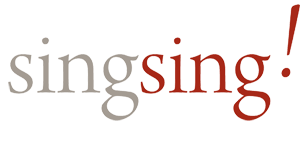
The Voice in the Menopause Transition: The Missing Element in Literature and Research
13/04/2025
Yesterday, I decided to talk publicly about something that still tends to get whispered about, or not talked about at all: My experience with perimenopause. And yes, that includes my voice! So I wrote the blog post I’m a Meripenopausal… Sorry, Perimenopausal Singer. Make sure to read it, if you have missed it.
That blog post is not only inspired by my own story, but also by the webinar The Voice in the Menopause Transition and Beyond, led by Joanne Hayes Bozeman. I can only scratch the surface here in my blog posts…
So make sure to subscribe to The singsing! Sofa Library and watch the recording of this webinar! You’ll learn EVERYTHING there is to know about how the menopause transition can effect the voice and how to navigate the symptoms.
Even though I can only scratch the surface here, I did want to share the bare minimum of what you need to know from the webinar ànd my personal story, so I had to cut the post in two. Yesterday, I wrote a brutally honest and also a bit activist report of my own experience. Today, in part 2, I’m wearing the hat of science-informed-voice-teacher-that-wants-to-educate-you.
What Do Hormones Have to Do with My Voice?
Okay, so if you’ve ever wondered what on earth hormones have to do with your singing, you’re not alone. In the webinar, Joanne walked us through this step by step.
She explained that the key players here are the sex steroid hormones:
- Estrogens
- Progesterone
- Androgens like testosterone
The work of French laryngologist Dr. Jean Abitbol and his gynecologist wife, Dr. Béatrice Abitbol – I know, right? Power couple! – has been eye-opening. Together, they discovered that the surface cells of the vocal folds change in sync with the cells of the cervix throughout hormonal changes. The cells even look identical under a microscope. You read that right, you can’t see the difference between the cells of your vocal folds and those of your cervix! That was a collective “Wait, what?!” moment in the chat.
Basically, your voice and your reproductive system are way more connected than most of us ever realized.
When you see these gorgeous drawings of our larynx, vocal folds, uterus, pelvic floor and vulva by @luisaalexandre, the connections are undeniable. (Click here, here and here for the drawings on her Instagram account.)
Estrogen – The Vocal Fold’s BFF
Estrogen plays a pretty supportive role here. It helps make the vocal fold surface thicker, smoother, and more flexible. It improves blood flow, helps produce that nice thin, slippery layer of mucus that keeps everything moving smoothly, and supports the structure of the folds. So when estrogen levels drop, those helpful effects drop too, which can lead to a voice that feels drier, less responsive, or just… different.
This doesn’t just happen in the voice. Remember the connection between your voice and your reproductive system I explained earlier? Yep! The exact same kind of dryness can show up in your vaginal region too.
Progesterone – The Cause of Swelling
Progesterone, on the other hand, can be a bit less friendly to the singing voice when it’s dominant. It thins the surface layer, makes mucus thicker (and not in a good way), reduces blood flow to the area, causes drier vocal fold conditions and can cause swelling by trapping fluid in the tissue.
So if you ever feel like your voice is puffy or sluggish, hormone shifts might be part of what’s going on.
Testosterone – Powerful, But Risky
High doses of testosterone like those used in certain medical treatments can cause permanent voice changes. It can cause the vocal folds to thicken, lowering your pitch and sometimes making the upper range harder to access. Joanne made sure to warn us during the webinar that it’s so important for singers to talk with a voice-informed doctor before starting any kind of hormone therapy.
For those who wish to preserve their upper range, testosterone supplementation should be approached with real care. Especially since some well-meaning clinicians just aren’t thinking about the voice when prescribing these things.
A Midlife Neuro-Endocrine Transformation
The menopause transition isn’t a single moment in time. It’s a long and gradual process during which the hormonal cycles of reproduction wind down and eventually stop. It affects the entire body, not just the reproductive system, including the voice. In fact, around 80% of women experience physical symptoms during perimenopause, even before they’re fully aware that the transition has begun.
Here are the Stages of the Menopause Transition:
1. Perimenopause
Everything typically begins with perimenopause, a phase that can last anywhere from four to ten years. Naturally, it can begin as early as the late 30s. It can occur earlier due to a medical procedure or in the case of premature ovarian insufficiency (POI).
During perimenopause:
- Estrogen and progesterone production is fluctuating wildly. They are desperately trying to establish some kind of pattern to cause ovulation, but there is undershooting, overshooting, and it’s pretty much a hormonal rollercoaster for a period of time, before settling into a long, slow decline.
- Periods may still be regular at first, but eventually become shorter, closer together, then later more irregular and spaced out.
- Natural androgens like testosterone also decrease slowly over time.
2. Menopause – Graduation day! (© Joanne)
Medically, menopause lasts one day: The day when 12 months have passed with no menstrual period, a moment we only recognize in hindsight. That point marks the beginning of post-menopause
3. Post-Menopause
- The body settles into this new hormonal baseline: Hormone levels become more stable, though low. Estrogen and progesterone have dropped to 10–20% of previous levels.
- Ovulation has stopped, and no more eggs are released. The ovaries continue to produce small amounts of androgens and remain active as endocrine glands.
- Low levels of estrogen and progesterone are still made via other mechanisms.
A Wide Spectrum: How the Menopause Transition Affects Voices Differently
It’s important to begin with this: Not all singers experience vocal difficulties. Some notice no changes at all, while others report only minor or manageable shifts. But for a portion of singers, the changes can be more noticeable or even distressing. That’s why it’s essential to avoid generalizing or planting unnecessary fear. We should never talk ourselves or others into expecting vocal problems that may never come.
So yes, we celebrate the singers who report “smooth sailing” through midlife, and those stories are real and encouraging. But it’s also time to hear from others whose experiences were more complex.
Because estrogen and progesterone have receptors throughout your whole body, including your voice, this transition can have wide-ranging effects on your singing. Some effects are direct, some are indirect. However, every body is different! Your experience won’t be exactly like anyone else’s.
Some indirect symptoms that can effect your performance indirectly are brain fog, sleep disturbances, pelvic symptoms and joint and muscle pains.
Hormonal Chaos, Vocal Confusion
Given the hormone rollercoaster of perimenopause, with estrogen and progesterone overshooting and undershooting, it’s no surprise that your voice can also be directly affected by it. We talked about this elaborately during the webinar. Here are a few symptoms that can present themselves:
- Difficulty accessing your upper range
- Vocal fatigue, reduced power, and loss of intensity
- Dryness, stiffness, or loss of flexibility
- Issues with pitch (often flatting), instability, and unpredictable mid-range shifts
- Hoarseness, raspiness, and reduced tonal clarity
These changes can be deeply unsettling, especially when they appear without warning. For many, this brings emotional weight: a loss of confidence, confusion, shame, sadness, or self-doubt. Some even fear they’ve “become a bad singer”, a fear made worse when peers of a similar age report no difficulties at all.
The good news?
For many, the voice settles and stabilizes again in post-menopause, just like other menopausal symptoms often do. While it may take a few years, singers often report a return of vocal ease, reliability, and even new strengths. The many encouraging stories from singers that Joanne has shared during the webinar really touched our hearts.
When you embrace adaptation and accept the natural process of aging, the menopause transition doesn’t have to mean decline. It can be a powerful next chapter! Your voice may change, but it’s not lost. In many ways, she can become even more expressive, grounded, and uniquely beautiful.
Holistic Preparation and Anticipatory Guidance for Singers in Midlife
So, what can you actually do as you approach or move through this time of hormonal transition? Joanne offers a wealth of insights and tips throughout the webinar, so if you haven’t watched it yet, please do. It’s an invaluable resource! It’s all about being proactive, staying informed, and making choices that support your voice before things become overwhelming.
Most of all, keep singing! Even if you’re feeling discouraged or uncertain about your voice, don’t stop singing. When we stop, we risk losing vocal fitness. And when the voice does settle later, it can be harder to regain that flexibility, strength, and stamina. Sing what feels comfortable and easy. Consider working with a voice teacher who understands this transition. Be gentle with yourself. Adapt rather than push. If you would appreciate my guidance to navigate your voice through (peri-)menopause, book your Free Discovery Call here!
Remember, for many, the voice becomes more stable, reliable, and expressive in the years after menopause. By staying engaged and supported during the bumpier stages, you’ll be in a much better position to enjoy this “second wind” when it arrives.
Again, I only scratched the surface here. In the full recording of The Voice in the Menopause Transition and Beyond, Joanne explains this all (and much more!) so clearly and in a way that actually makes sense, even if your last biology class was *ahem* a few decades ago.
If you’re curious, or even hormonally confused, subscribe to The singsing! Sofa Library to get immediate access to the recording! You’ll learn a ton and receive a never-ending list of resources as a bonus.

Joanne has given me concrete, actionable information, and suddently it all seems much more manageable, I see a way forward. I feel reassured, informed and empowered.
Vocational singer
Vocational singer


Stella Handley, Vocational singer
Stella Handley, Vocational singer

As always, feel free to send me your thoughts, questions, and feedback in the comments below this blog, via the contact form or in the singsing! online community
Cordially,
Sarah




